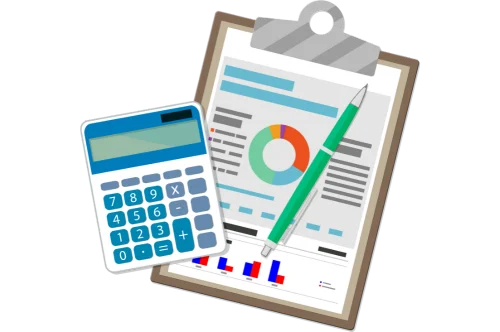Valuation Report
We provide objective business and asset valuations based on financial analysis, market conditions, and asset performance to determine true value. Our valuation reports support informed decisions for mergers, acquisitions, financing, and investments while meeting all regulatory and accounting standards.
- Accurate & Objective Valuation
- Regulatory & Accounting Compliance
- Supports Strategic Decisions

4270+
Happy Clients

99.2%
Filing Accuracy

14+ yrs
Of Experience

Free Consultancy By Expert
Overview
A Valuation Report is a comprehensive document that determines the value of a business, asset, or investment at a specific date. This report provides an objective, detailed analysis of the factors affecting value, such as financial performance, market trends, asset conditions, and comparable transactions. Valuation reports are commonly used in situations like mergers and acquisitions, financial reporting, fundraising, and strategic planning, helping stakeholders make informed financial decisions.
Key Aspects:
In-depth Financial Analysis: The report examines financial statements, cash flows, revenue streams, and assets, creating a clear picture of the business’s or asset’s financial health and sustainability.
Market and Industry Insights: Includes research on current market trends, economic conditions, and industry benchmarks, providing context for the valuation by comparing the subject with similar businesses or assets.
Methodology and Approach: The report outlines the specific valuation methods used (such as income, market, or asset-based approaches), explaining the rationale behind chosen methods and the steps involved in determining value.
Benefits:
- Informed Decision-Making: Aids in negotiations, investment planning, and strategic initiatives by offering stakeholders a reliable basis for decision-making.
- Transparency and Credibility: Enhances trust with investors, regulatory bodies, and creditors by providing an objective, well-documented valuation.
- Risk Identification: Helps uncover financial risks or challenges, giving businesses the opportunity to address them before taking on new strategic ventures.
A well-prepared report is essential for businesses seeking to understand their worth, make data-driven decisions, and ensure alignment with financial standards and goals.
Why Taxamicus?

Expertise in Diverse Valua..
Taxamicus boasts a team of skilled professionals with extensive experience in various types of valuations, including business, asset, and investment valuations, ensuring accurate assessments tailored to client needs.

Comprehensive Methodologies
We employ a range of recognized valuation methods (income, market, and asset-based approaches) to deliver a nuanced understanding of value based on thorough analysis.

Detail Financial Analysis
Our reports include in-depth financial assessments, providing clarity on the business’s financial health, cash flow projections, and key performance indicators.

Customizable Reports
We understand that each client has unique needs, and our valuation reports can be tailored to focus on specific aspects of the business or asset, addressing particular client requirements.
FAQ
A valuation report is a document that provides an objective assessment of the value of a business, asset, or investment based on detailed financial analysis and market conditions.
Valuation reports are essential for informed decision-making in mergers, acquisitions, fundraising, financial reporting, and strategic planning, helping stakeholders understand the worth of a business or asset.
Common methods include the income approach (based on future cash flows), market approach (based on comparable sales), and asset-based approach (based on the value of assets minus liabilities).
Valuation reports are typically prepared by certified professionals, such as business appraisers, financial analysts, or valuation experts with expertise in the relevant industry.
The timeline varies depending on the complexity of the valuation and the availability of necessary data, but it generally takes a few weeks to a couple of months.
Key documents include financial statements, tax returns, forecasts, business plans, asset registers, and any relevant market research or industry reports.
Valuation reports should be updated regularly, especially in dynamic markets or if significant changes occur in the business, such as mergers, acquisitions, or substantial financial shifts.
Valuation reports are not legally binding documents; however, they can serve as crucial evidence in legal disputes, negotiations, and regulatory compliance.
Yes, if you believe the valuation is inaccurate or unfair, you can challenge it by presenting counter-evidence, seeking a second opinion, or engaging in negotiation with the valuator.
Factors include market conditions, industry trends, financial performance, asset conditions, competitive landscape, and economic indicators, all of which can influence the final valuation.


